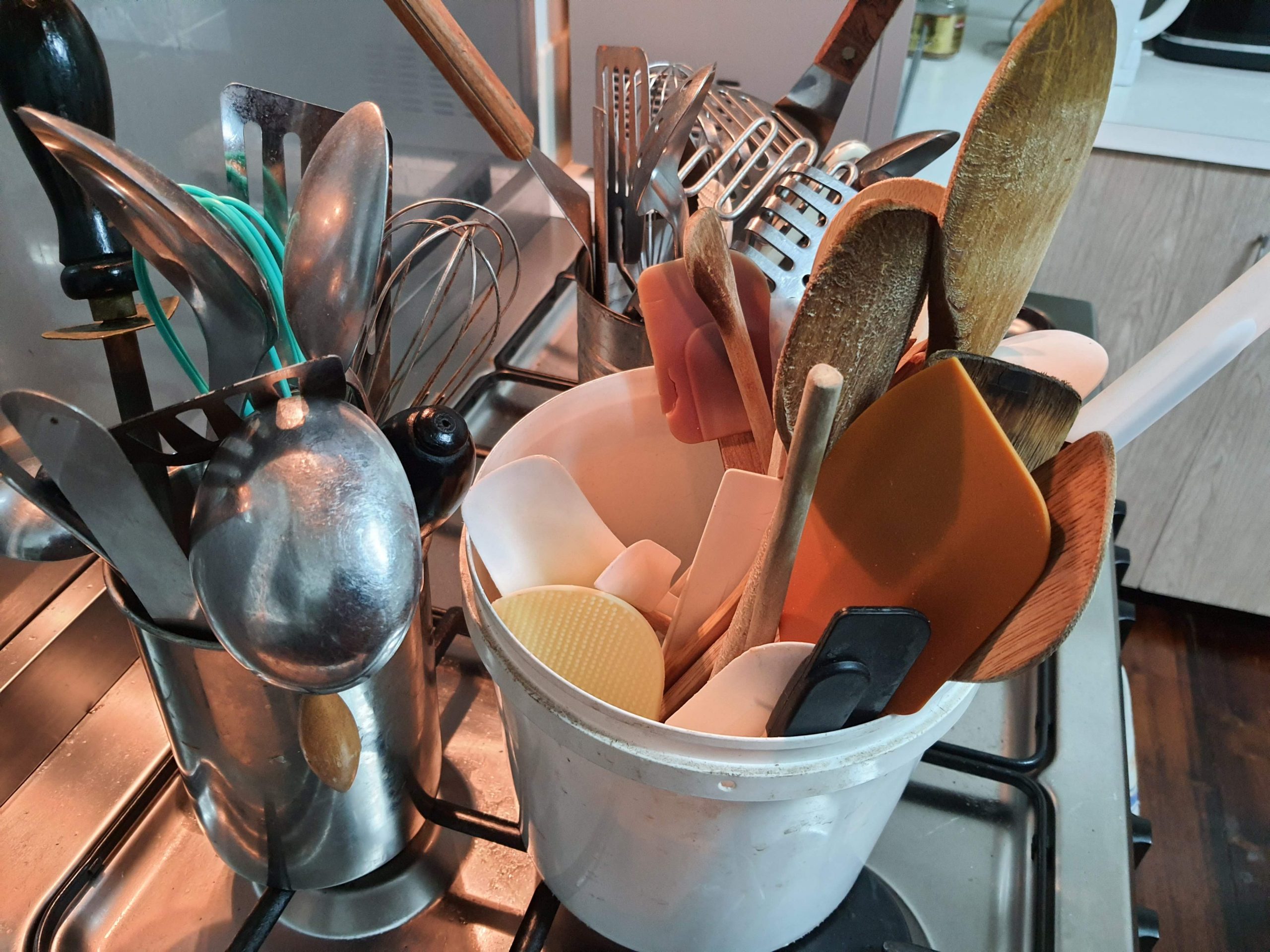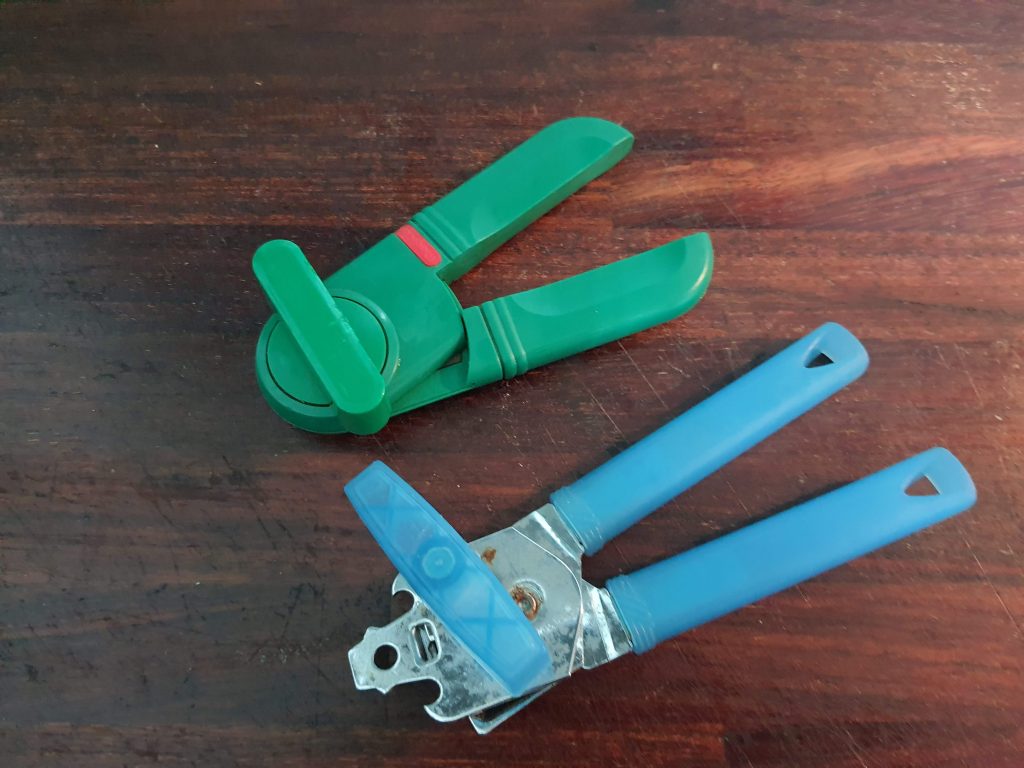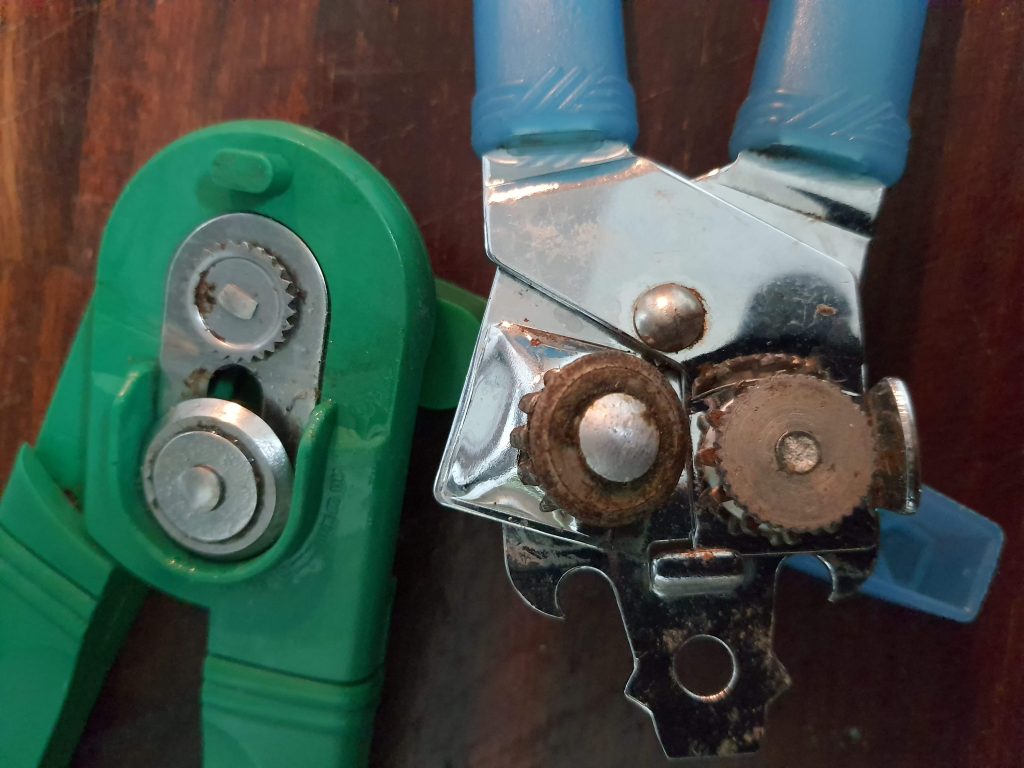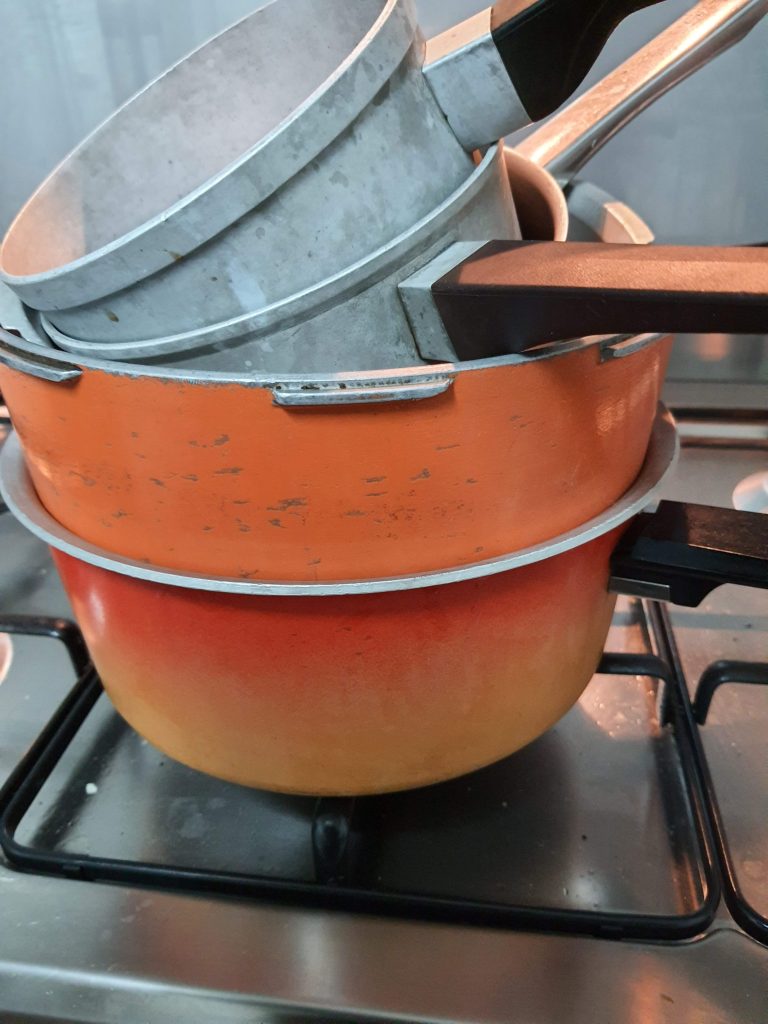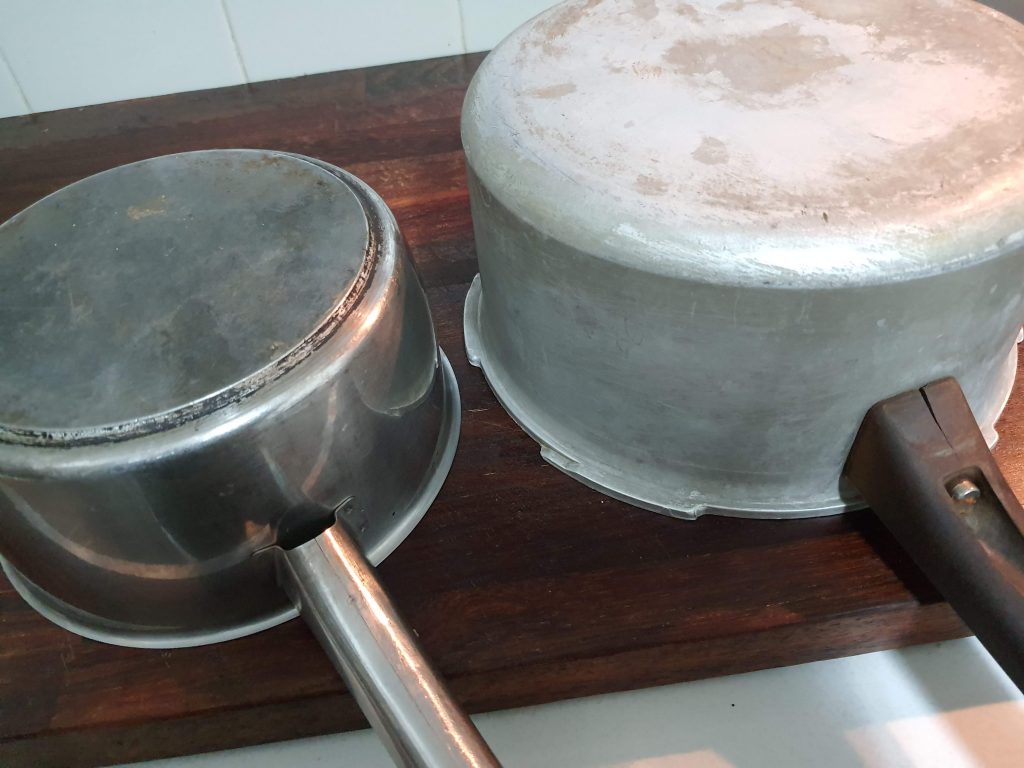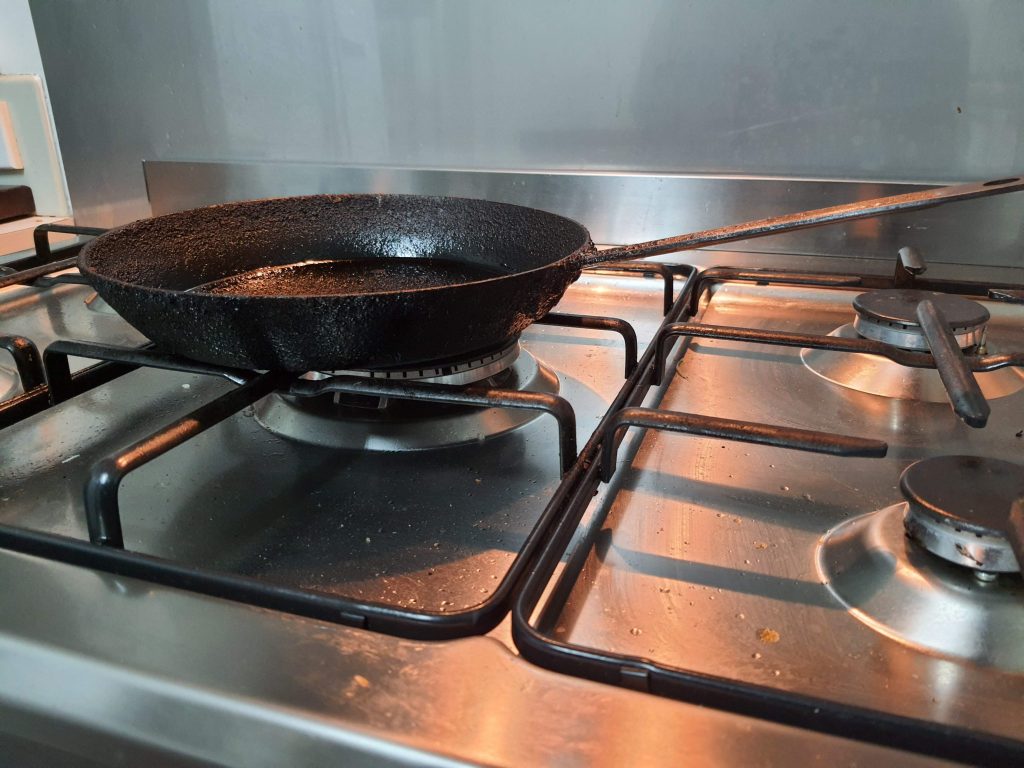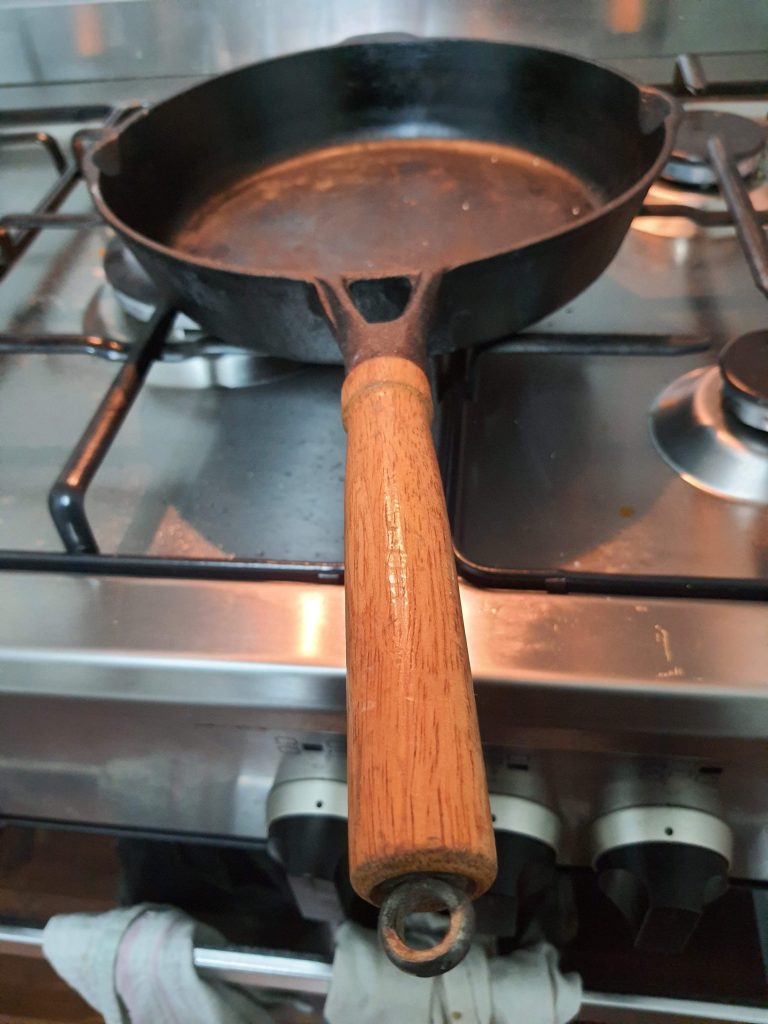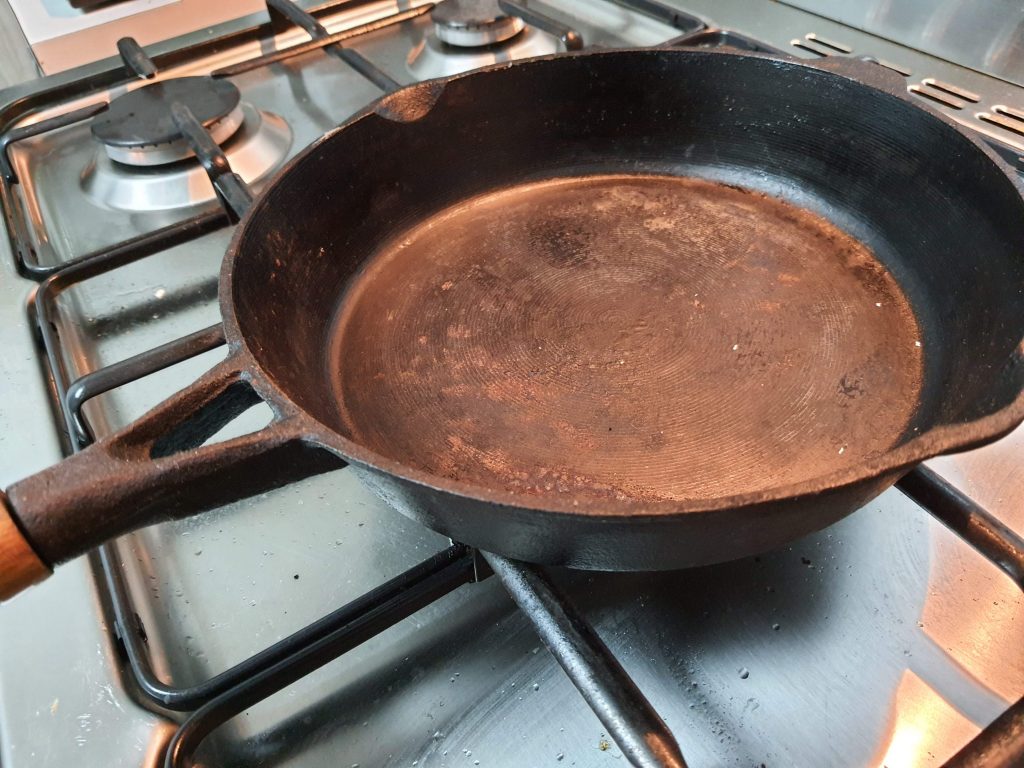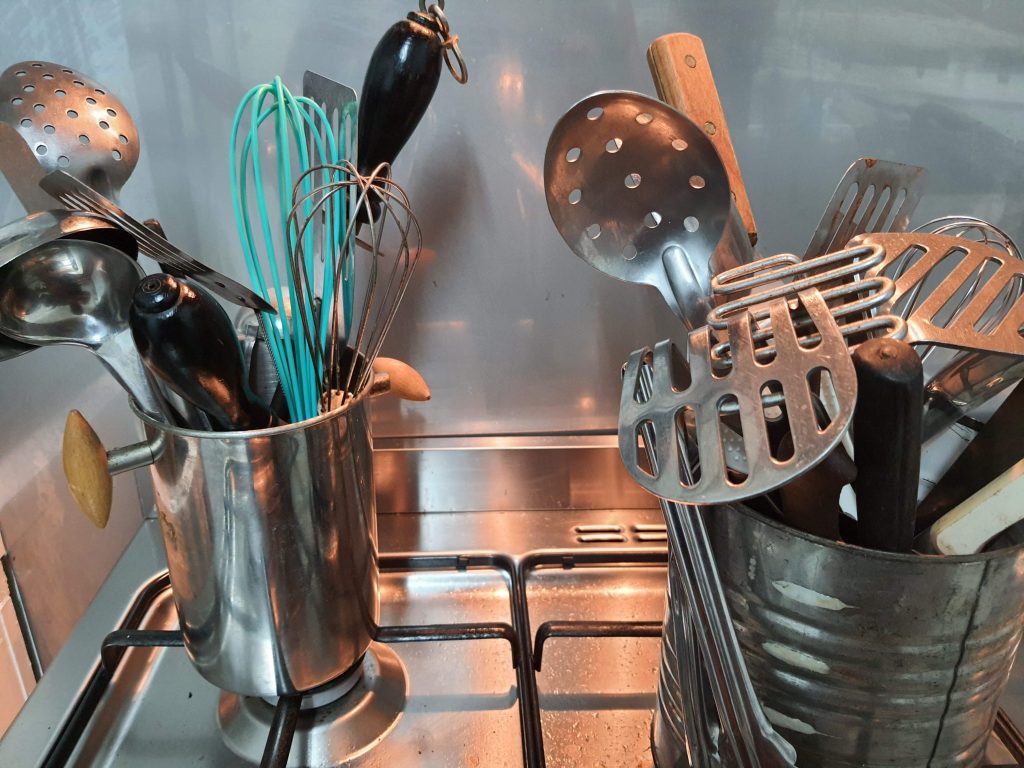
INTRODUCTION
There are loads of bits and pieces that you will need to get up and running with your cooking, but there are some essential tools that you can’t do without and you will be using all the time. You might as well invest in some decent kit if you are setting up a kitchen for the first time.
I have been using the same knives and equipment for the over forty years. When the likes of Sabatier the knife makers say “Lifetime Guarantee”, they mean it. The same applies to a lot of other equipment that I have acquired during my career as a chef, I am still using the same kit forty years later.
As long as you look after it properly and use the right equipment for the right job, they should last you a long time. The saying “You buy cheap, you buy twice” should actually be “you are going to buy over and over again”. You don’t have to buy the most expensive equipment in the shop, just don’t buy the cheapest you can find. I have loads of equipment. Hundreds of kitchens tools, but a lot of them are for specific jobs. Such things as Pasta Machines, Mincers, Mixers, Liquidiser, Olive Pippers, Turning Knives. The list goes on and on. You won’t need everything at once. The fun is acquiring them as you go and taking them home to your kitchen for the first time to work on that delicious creation you have in mind.
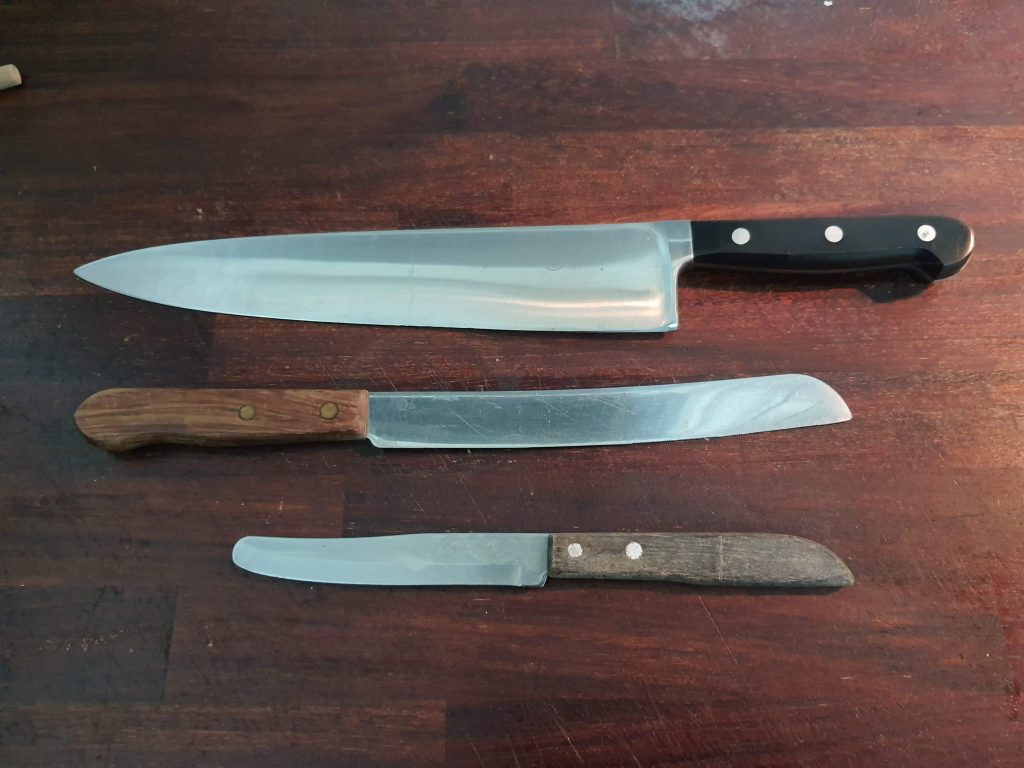
- KNIVES. Actually, the first item is more than one thing. Ideally you will need a Big Knife, a Small Knife and a Serrated knife. Or to use the correct terms, a Chef’s knife and a vegetable knife. The Chefs Knife should be at least twelve inches long. It should be made with stainless steel and forged from one piece of steel running right through to the end of the handle. I prefer a wooden or hard plastic handled knife with three rivets to secure the handle. Perfect for cutting large vegetables or such as pumpkins or melons to thin strips of julienne. Also handy for butchery.
The smaller Vegetable Knife is made exactly the same as the Chefs Knife except it is four to five inches long. Handy for smaller jobs such as slices and trimming small vegetables, salad and fruit like strawberries, tomatoes or onions.
The serrated knife is really handy for bread and pastry work. Make sure you always use the right knife for the right job. Do not put your knives through the dishwasher. The heat will eventually loosen the rivets and shorten their life span. Do not just throw them in the sink with the dirty washing. Wash your knives straight away and put them away. They will last you for ages.
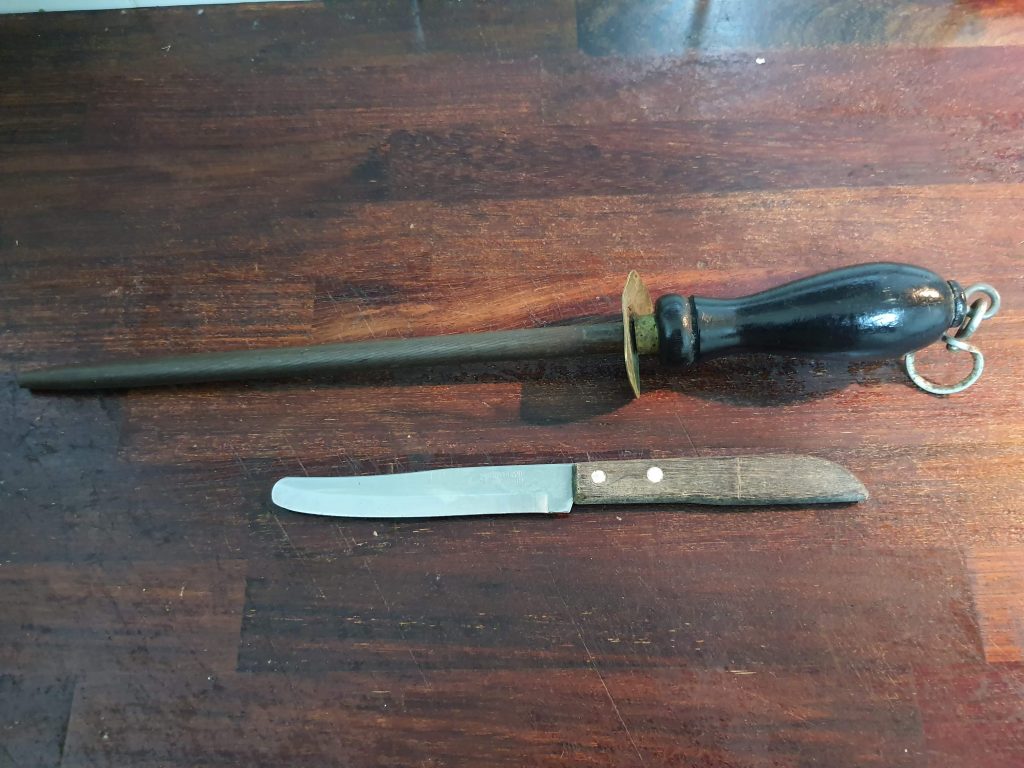
2. STEEL. You will need a good steel if you want to keep your knives sharp. You need to sharpen your knives on a regular basis, before and during use. To sharpen your knives, place your knife at an angle of between 15 to 30 degrees to the blade. Pressing firmly, rub the knife from tip to base seven times on each side. Start slowly. After several time doing this you will get the rhythm and become adept at the motion. It is essential to keep your knives sharp.
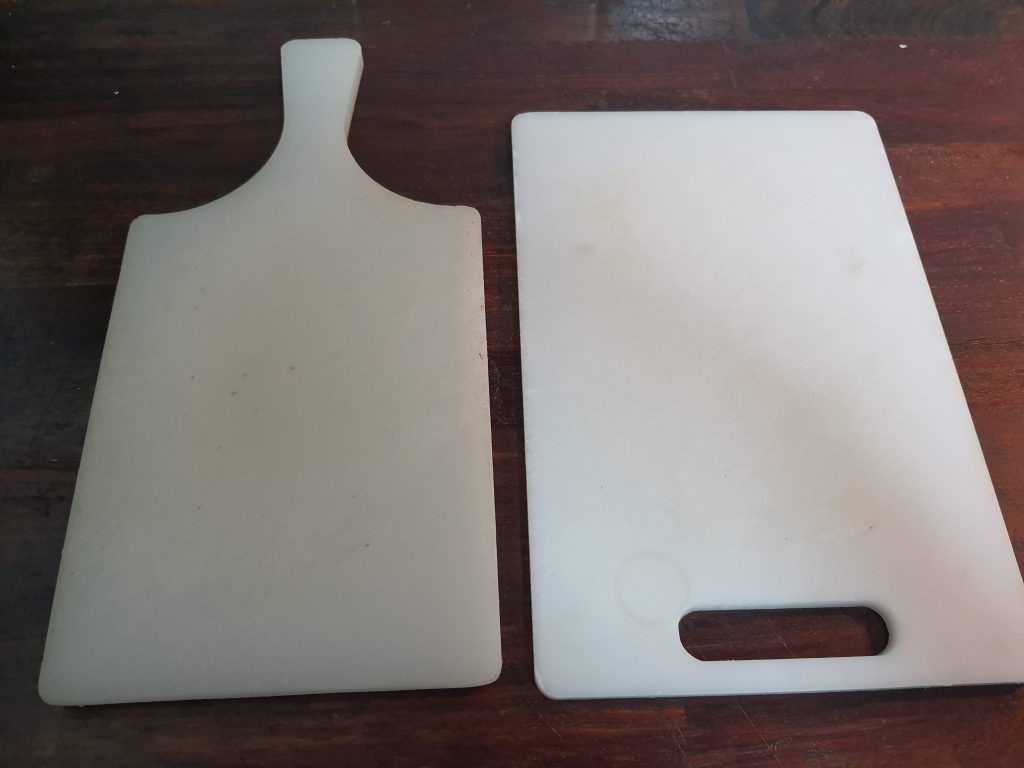
3. CHOPPING BOARD. You will need a chopping board. There are wooden ones or plastic ones. Plastic boards have become more popular but a lot of chefs and kitchens swear by wooden ones. Plastic ones are easier to sanitize but they do get deep grooves in them when used for heavy cutting. They also pick up stains that you can’t remove. Wooden ones I find are just as easy to scrub down with a bit of elbow grease.
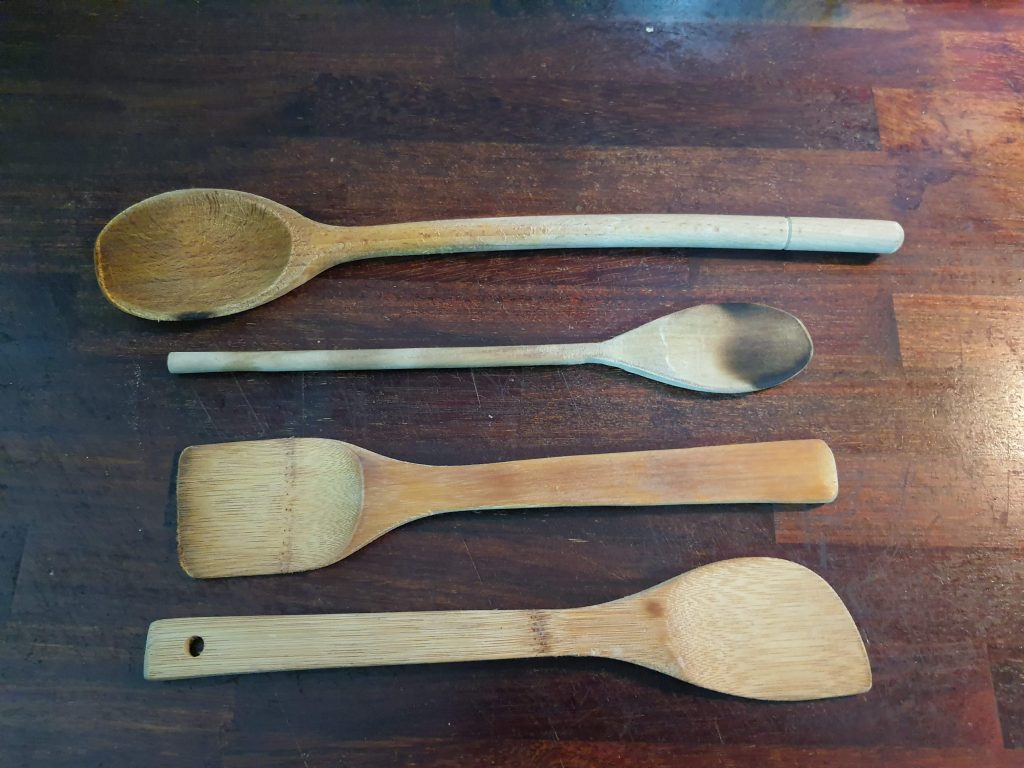
4. WOODEN SPOON. You absolutely need a wooden spoon if you are going to be doing any cooking in a pot. Sauces, stews, curries, scrambled eggs, you name it. Again, always use the right equipment. The wooden spoon should not be left in the pot when you are cooking. Take it out after stirring and tap it on the side of the pot to remove excess food. Then either rest it on the edge of the pot or on a plate. If you leave the spoon in the pot it will taint and warp it. Be careful not to burn it on high naked flames. Eventualy you will end up with several wooden spoons of all shapes and sizes for different jobs.
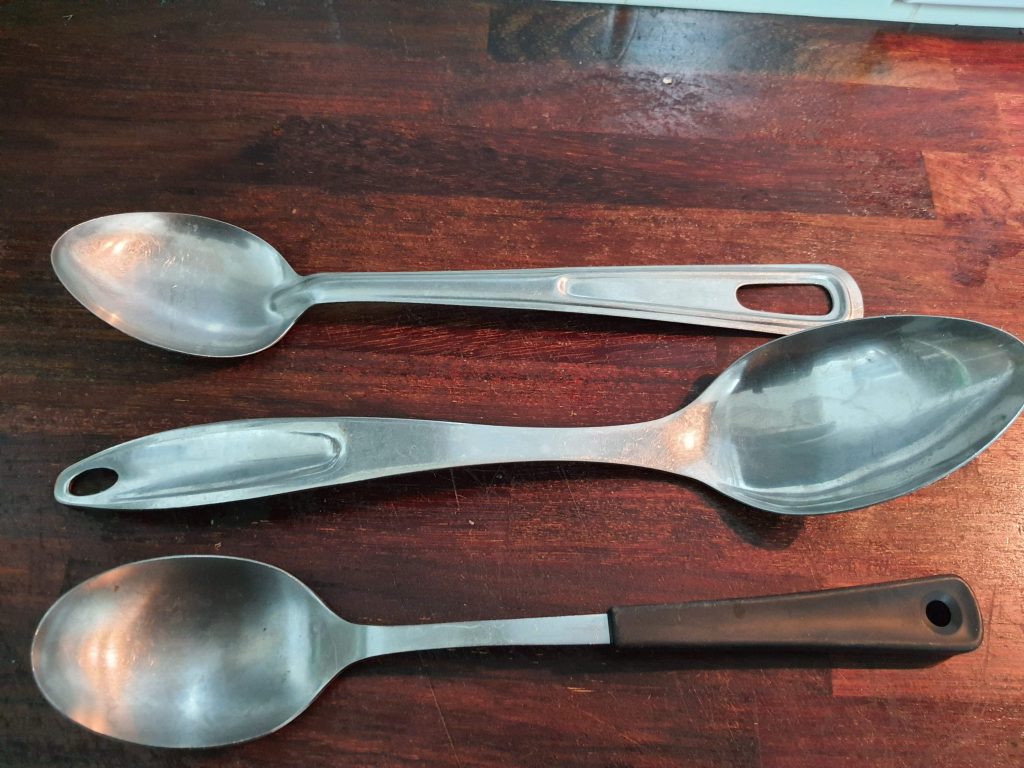
5. METAL SPOON. Metal spoons are for serving. They are also called Serving Spoons. A lot of people make the mistake of using these spoons for cooking. They will get hot and burn you. Stick to wooden spoons for cooking and metal spoons for serving up your stews and wet dishes. Beside them burning you, they will also ruin the protective layer on your non-stick pots and pans.
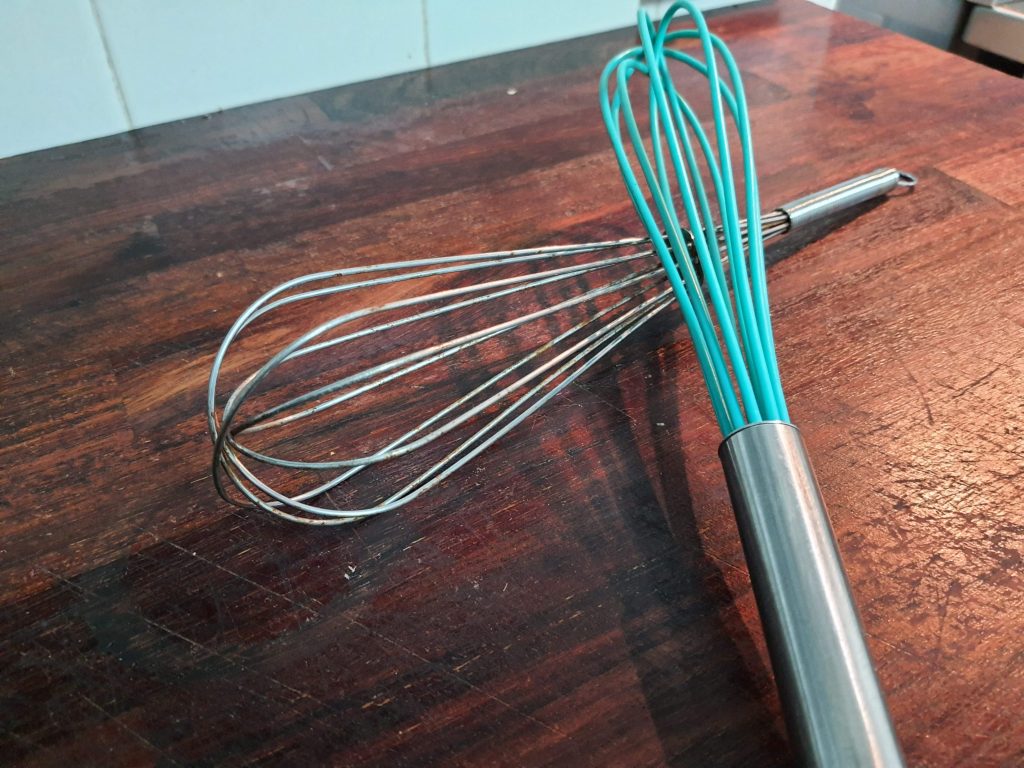
6. WHISK. If you want to make a smooth sauce free of lumps, you will need a good whisk. Firm and made of stainless-steel wire. Do not opt for the rubber ones, they are next to useless. They will also be needed when you need to whip cream and egg whites for your desserts. There are different sizes and thicknesses of whisks available for different jobs. Make sure you clean them thoroughly after using them. You don’t want traces of your asparagus soup in your whipped cream.
7. CAN OPENER. As obvious as this sounds, a good can opener is essential in the initial kit for your kitchen. You won’t get far without one. Invest in a robust one that eases the process. Some can openers are really hard to use. I have had cheaper ones snap halfway through using them. Like most kitchen equipment there are several types you can buy.
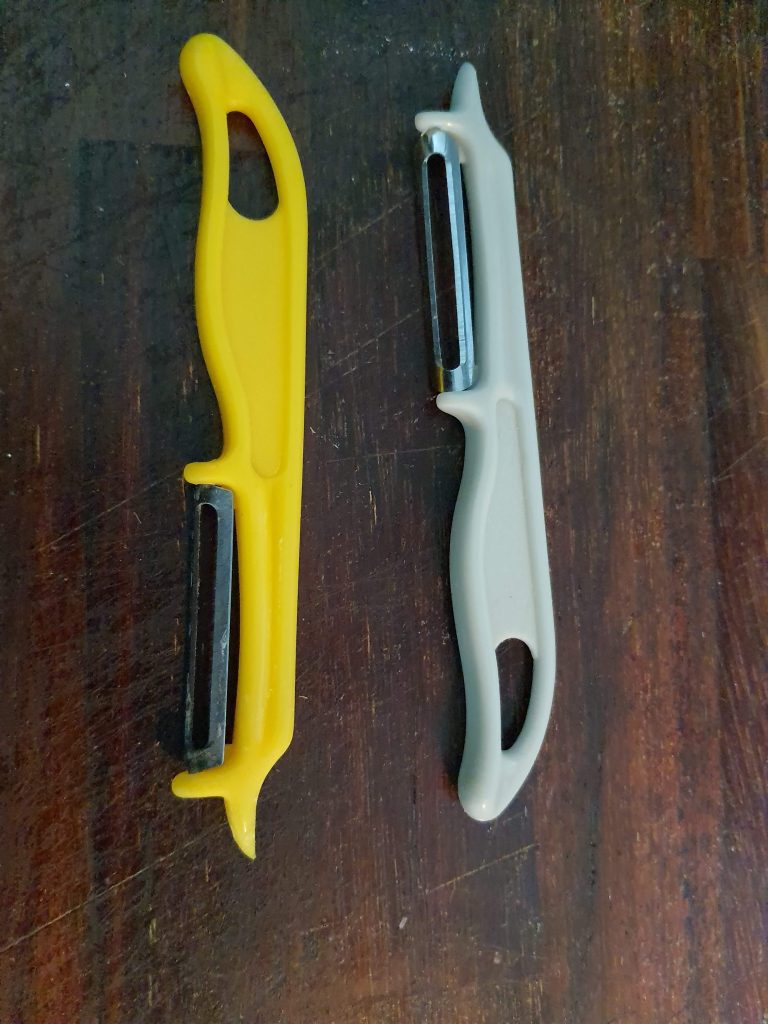
8. PEELER. Peelers are another essential tool you will need. From the usual jobs like peeling the likes of potatoes, carrots, parsnips and turnips. But they are also good for making shavings of carrots for your salads or shaved parsnips for frying to serve with your steaks. Useful for making potato chips as well. You can get several types of peelers. I find it useful to have a swivel head one and a rigid one.
9. THICK BOTTOMED PAN / POT. If you are going to buy a saucepan, make sure it is a thick bottomed one. The thick base and side of the pot will ensure that heat is distributed evenly and your food will not burn. Make sure it has a lid. You will eventually end up with several saucepans and pots.
10. THICK BOTTOMED FRYING PAN. The same as the Pots, the thick bottomed Frying Pans will cook your food evenly without burning it. From fried eggs to inch thick steaks, you will find it does a great job. In kitchens chefs use an all metal frying pan which they can use to finish food in the oven. I tend to keep an eye open for thick metal skillets which will do the same job at a fraction of the price. You will have to keep them oiled though to prevent them going oily.

